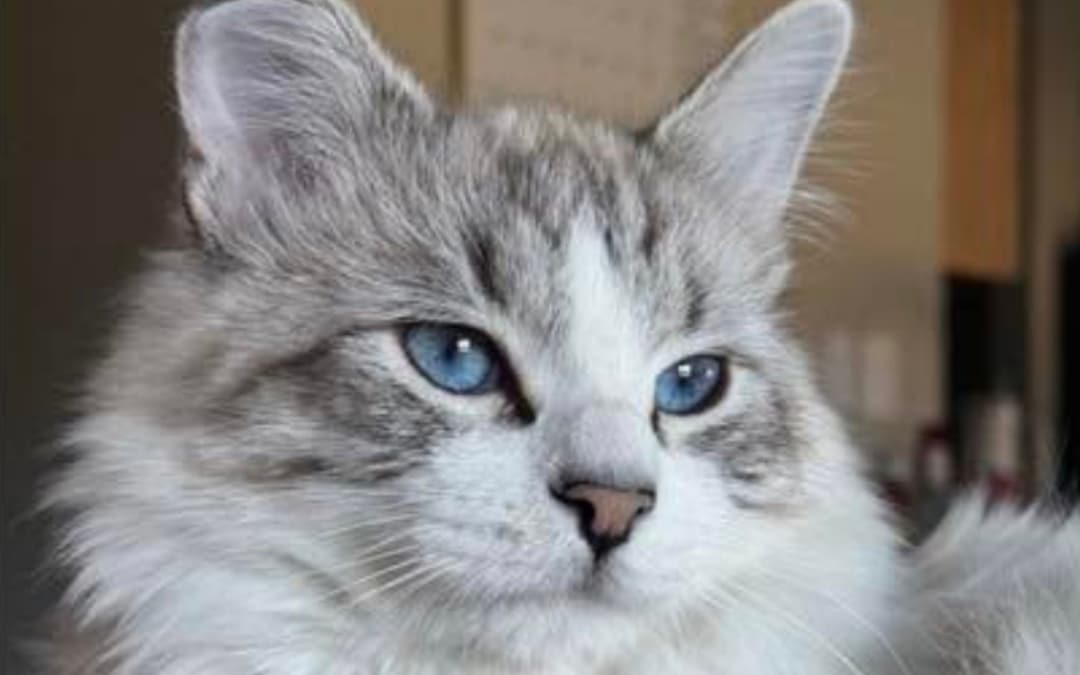Meet Odessa
Odessa is a 1-year, 9-month, and 30-day-old Domestic Medium hair cat who has redefined what’s possible in veterinary medicine. Her story is one of rare diagnosis, advanced treatment, and an extraordinary comeback that left our entire team in awe.
At Cascade Veterinary Clinics in Wenatchee, WA, we’re privileged to witness incredible moments of resilience and healing—but every so often, a case truly takes our breath away. Odessa, a young feline patient, is one such medical marvel. Her journey through the dry (neurological) form of Feline Infectious Peritonitis (FIP) and her remarkable recovery is not only a testament to evolving veterinary options but to the power of early detection, skilled care, and relentless client dedication.
The Mysterious Onset: A Dire Prognosis—and a Second Opinion
Odessa’s story began with heartbreaking news. After exhibiting sudden paresis (partial paralysis) and other concerning neurological symptoms, her initial veterinary diagnosis was devastating: she was suspected to have FIP, and the recommendation was euthanasia. Her family was told there was nothing more that could be done.
But when Odessa came to Cascade Veterinary Clinics, Dr. Edwards wasn’t going to accept that outcome. Instead, she got to work.
Through clinical evaluation and diagnostic imaging, Dr. Edwards suspected dry (neurological) FIP, a rare form of the disease that affects the brain and spinal cord. To confirm the diagnosis, Odessa was referred to BluePearl Specialty and Emergency Pet Hospital in Olympia, where neurologist Dr. Chavera performed an MRI. The imaging revealed cerebellar herniation consistent with FIP—a serious and often fatal condition.
Fighting Back: GS-441524 Protocol
Dr. Edwards guided Odessa’s family through an aggressive treatment plan using GS-441524, an antiviral medication that has shown life-saving potential in treating FIP. Neurological FIP requires a high dosage due to the blood-brain barrier, and time is critical.
This moment marked a dramatic turning point in her recovery.
What Is GS-441524?
GS-441524 is currently the most widely used and well-documented treatment for FIP. The standard treatment protocol includes 84 days of daily antiviral therapy, with dosage adjusted based on the form of FIP. Neurological cases like Odessa’s typically require 10 mg/kg twice daily, along with careful monitoring.
From Critical to Cured: A One-Year Transformation
Today—just one year after that grim diagnosis—Odessa is considered cured. She continues to thrive under the care of our hospitalist team and enjoys an active, happy life.
Her recovery wouldn’t have been possible without the unwavering dedication of her owner, who shared:
“After 84 days of observation, the FIP admins said she’s officially cured. I’m beyond happy and so grateful to Dr. Edwards and the team for never making me feel like giving up was the only option. It was the longest and hardest 168 days—but now Odessa’s story might help save another cat.”
“Odessa’s story is a reminder of how far we’ve come in the fight against FIP,” says Dr. Edwards. “What was once considered a hopeless diagnosis can now become a story of healing and hope.”
Raising Awareness: What Pet Owners Need to Know About FIP
Feline Infectious Peritonitis (FIP) was once considered a universally fatal disease. But thanks to breakthroughs like GS-441524, more cats like Odessa are not only surviving, but thriving. Whether your cat is showing vague signs of illness or neurological decline, early intervention is critical.
Cascade Veterinary Clinics is proud to be at the forefront of advanced feline diagnostics and antiviral treatment options. Whether it’s neurological care, infectious disease management, or hospital-level monitoring, we’re here to help give your pet the best possible chance.
Does Your Cat Show Signs of FIP?
Don’t wait. Schedule a consultation or second opinion today.
(509) 663-0793
cascadevetclinics.com
Frequently Asked Questions

